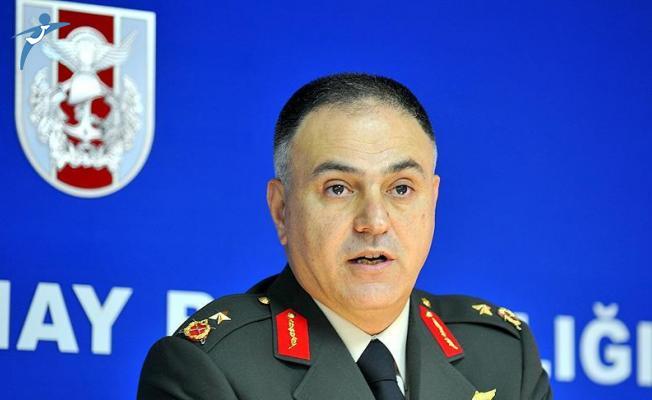Türkmen Terzi
Recent strategic changes within Turkey’s National Police Force and Supreme Military Council (YAŞ) have fueled concerns about a resurgence of the country’s shadowy deep state apparatus. On Aug. 2 President Recep Tayyip Erdoğan greenlit a significant reshuffling of the police force. Barely 24 hours later, YAŞ announced the unprecedented appointment of Metin Gürak, a controversial figure, as chief of general staff, marking the first time an individual has been named to such a high military post without having served as a force commander. Compounding the situation is the appointment of Engin Dinç as Ankara’s new police chief, a man previously accused of ignoring intelligence regarding the assassination of journalist Hrant Dink in 2007 and the 2015 Ankara Train Station bombing. These shifts hint at the rising influence of clandestine elements within the state’s security apparatus, even as Erdoğan’s grip on the levers of power does not appear to be weakening.
Amid this backdrop of security reshuffling, Turkish journalist and political analyst Murat Yetkin points out the implications. He observed that during this shakeup, which saw over 80 high-ranking police officers moved, Erdoğan strategically distanced himself from police chiefs who had ties to former interior minister Süleyman Soylu and the far-right Nationalist Movement Party (MHP), an election ally of Erdoğan’s ruling Justice and Development Party (AKP). Yetkin contends that this strategic positioning is likely driven by the 2024 local elections, which hold significant importance for Erdoğan. His AKP is keen on reclaiming İstanbul, Ankara and other key municipalities.
Furthermore, Yetkin emphasizes that YAŞ not only handles promotions and purges in the army but also determines the nation’s war readiness. Erdoğan’s recent move to elevate Gürak, coordinator of the Libya operation and a co-chair of Turkey-Azerbaijan military talks, indicates an intent to adopt an assertive foreign policy stance, particularly in the MENA region. This assertion is further supported by Gürak’s operations against the outlawed Kurdistan Workers’ Party (PKK) in Iraq and Syria since 2020.
Adding another layer of complexity, prominent Turkish journalist Ahmet Nesin, during a YouTube interview titled “Were they appointed despite Erdoğan?” proposed an intriguing viewpoint: Gürak might not have been Erdoğan’s first choice for the position. According to Nesin, Gürak is known to minimize military-political ties and is particularly intent on purging soldiers affiliated with religious groups.
A familial connection between Gürak and former chief of general staff İlker Başbuğ, previously incarcerated for his alleged role in a coup plot against Erdoğan, demands a deeper exploration of historical context. Başbuğ’s association with the “Ergenekon” trials, where a network of secular nationalists were accused of orchestrating extra-judicial actions to instigate a military coup during Erdoğan’s early years in office, paints a tangled web of loyalties and betrayals. While Erdoğan initially supported these trials, his perspective shifted after the 2013 corruption probes targeting his close associates, leading to the subsequent release of Başbuğ and other key Ergenekon suspects in 2014.
Serdar Öztürk, a respected journalist, claims that Gürak’s appointment may have stemmed from a covert agreement between Erdoğan and shadowy elements within the deep state, aimed at securing his recent electoral victory. Öztürk emphasizes that these clandestine operatives have been influencing events since the 1950s, often resulting in turbulence within Turkey. Echoing this sentiment, numerous veteran journalists and scholars speculate that Turkey’s deep state might be mobilizing against Erdoğan.
While Erdoğan perceived a coup attempt on July 15, 2016 as a “gift from God,” enabling him to dismiss over 30,000 army officers, including 150 generals, Gürak’s recent appointment as the top military official signals the possible waning of Erdoğan’s influence over the military. Gürak, during the notorious Ergenekon and Sledgehammer coup investigations, frequently addressed the media as head of communications for the Turkish Armed Forces (TSK), defending senior officers accused of plotting against the AKP. Controversy also surrounds Gürak’s actions on the day of the 2016 abortive putsch; he met with then-Chief of General Staff Hulusi Akar at the Armored Units School in Etimesgut at around 6:30 p.m., prior to the start of the coup attempt, ensuring that no tanks left their bases and inspecting the Land Aviation Command to ground all aircraft. Yet, conspicuously, he didn’t issue directives to his own division, leading to tanks patrolling the streets of Ankara that evening. Additionally, İbrahim Şahin, an ex-special operations officer and an Ergenekon suspect, alleged in a 2009 trial that Gürak, then leading General Staff Communications, ordered him to form an extralegal unit comprising 150 to 300 military and police staff.
After the 2013 corruption scandal, Erdoğan strategically aligned himself with the Ergenekon suspects, but these military officers and influential figures might be biding their time, seeking an ideal moment to retaliate against members of the ruling AKP. Dogu Perincek, head of the Patriotic Party and a previously convicted Ergenekon member, was released in March 2014 along with other suspects. He recently proclaimed on Ulusal TV that Erdoğan’s political reign is nearing its end, forecasting significant political shifts in Turkey within the next few years. Despite Erdoğan’s victory in the recent general election and his potential success in the 2024 local elections amid an economic downturn, the AKP’s parliamentary majority doesn’t necessarily translate to a robust presence within critical security bodies. While it’s unlikely that the Turkish military will stage a coup against Erdoğan’s Islamist governance, there are hints that they may seek a return to a more assertive secularist leadership in the nation.

